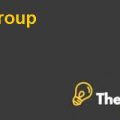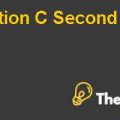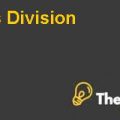
INTRODUCTION
Effective leadership means making a difference, creating a positive change in the workplace, and providing the motivation that creates an atmosphere of change, which improves the world or at least the small world around us. Leadership translates the company’s vision into reality by inspiring the employees or followers to want to experience the change process in the organization. On the other hand, leadership depends on responsive and active followers in a process of establishing the positive change, involving the direction and maintenance of collective activity (Brown, 1992).
The importance of leadership in the organization is undeniable because the leaders provide the directions for future venture, evaluate the prospects of success and expansion, and establish a concrete benchmark to reach the next level of achievement and goal. However, it is important for the organization to understand the differences between the leaders and managers. Managers are task-oriented and dedicated towards their work rather than the employees or individuals. On the other hand, leaders are both task and people-oriented, they are not only concerned about the objectives of the company, but also about the individuals that are involved in the process.
Moreover, leadership is a process by which one person influences the attitudes, thoughts, concepts and behavior of others. The international businesses around the world have become uncertain, complex and fast-moving than ever before. In addition, the globalization of world economy and differences between various countries leads the organizations to face multiple issues and challenges. Therefore, effective leadership helps the organization to bring constructive change, guide the employees, and mitigate the future risks, to gain competitive and customers’ advantage in the long run.
LEADERS
The exceptional leader has the courage, personality and clearer vision with the ambition to achieve the company’s goals and objectives. A dynamic leader not only possesses ethics and high moral standards, but also operates with a high sense of integrity, preferably for the betterment of the employees and the organization. Moreover, an effective and successful leader can be anyone from the politician to the owner of small café.
Furthermore, a good leader must possess certain power are qualities such as coercion and expertise power, strong personality, effective communication and negotiation skills, and honesty. Due to globalization, the environment of the workplace is changing from generation to generation. As a result, this leads the company to face multiple hurdles and risks within and outside of the organization.
The leaders know how to manage the risks and challenges, and if failure occurs, they take the responsibility to overcome the hurdles as soon as possible. Therefore, the effective leaders build a sense of community within and outside of the workplace, increase the employee retention and improve the productivity of the company because the employees are more likely to follow an effective leader rather than a non-effective leader.
CASE ANALYSIS
CAUSES OF LEADERSHIP FAILURE
Specialist Leadership style
Specialist leadership style is one of the causes that leads the company to face leadership failure. The specialist leader focuses on the facts rather than the focusing on building a constructive relationship with the employees, suppliers, stakeholders and business partners. Moreover, a specialist leader does not involve its staff in decision-making policy whereas; the specialist leader does not provide feedback on the employees’ performance and compliance.
Furthermore, the specialist leader imposes his powers on others, even sometimes affecting people standing in their way. The reasons to impose powers on others include insecurities, lack of skills and knowledge and lack of leadership personality.
Inability to organize the details
The leaders who are unable to organize the details and employees lead the company to face mismanagement in the workplace. A leader who fails to bring the constructive change does not implement an action plan on time and does not give attention to emerging and conflicts, admits his inefficiency.
If the leader himself shows poor performance and inefficiency, the teams cannot achieve organizational goals and objectives. The successful leader must be the expert on all details and processes that are connected with his position, employees, and the organization.Leading People When They Know More Than You Case Solution
Abdicate responsibility rather than delegates’ responsibility
When a certain task abdicates to the individual without regards to their capability, skills, abilities and knowledge, and with no proper guidance, the tasks invariably fail. Therefore, it is important for the leader that he should delegate work on the project or within the business. The delegation requires careful planning, project’s requirement, and talented individuals to fulfill the task effectively and efficiently.......................
This is just a sample partial case solution. Please place the order on the website to order your own originally done case solution.













